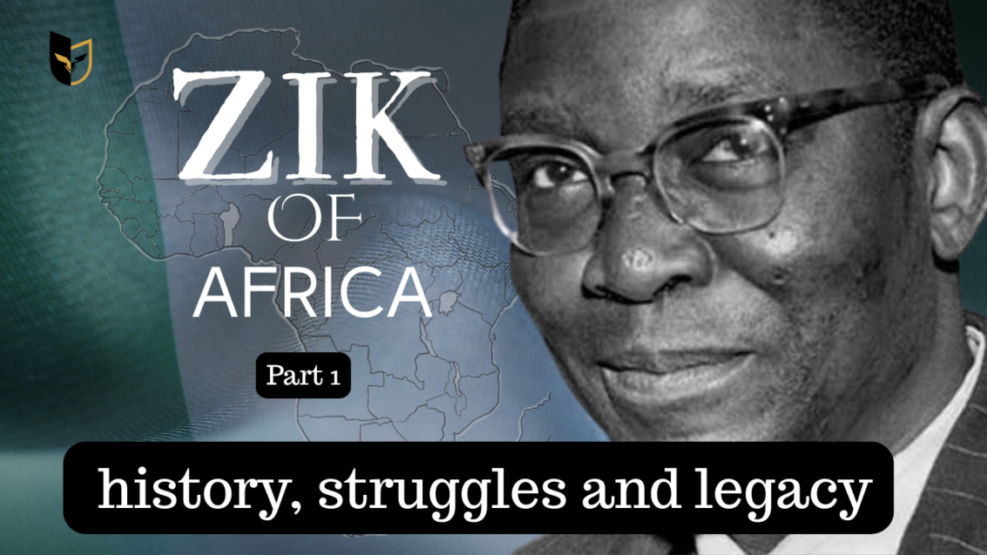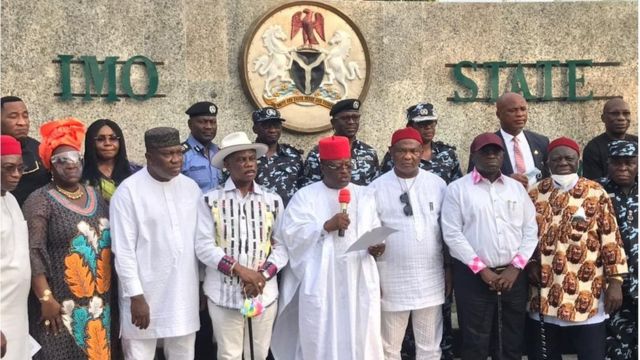No products in the cart.


When it comes to observing the Federal Character (FC) principle, Nigerian leaders will follow to the letter what is contained in the constitution even if it’s only on paper. The Federal Character principle, often referred to as the quota system, though they are similar but different in objectives, is observed in all facets of the country’s institutions. Agencies and establishments utilize the principle but when it comes to politics and of presidential election, the Federal Character law is jettisoned.
In academics, sports, employment, appointments, and in civil service, the Federal Character principle is invoked. Offices make a list of states and number of staff from each state or region and make an attempt to follow through in order not to overwhelm the system with people from a particular zone.
Given the imbalanced nature of Nigeria prior to independence, the people agitated for a system that would encourage equity and justice and that came about the quota system which came in effect in 1958. Quota system aimed at creating a balance for all Nigerians to be equitably represented.
In 1979, the Federal Character was enshrined in the constitution which was also included in the 1999 constitution. It states that, “The composition of the Government of the Federation or any of its agencies and the conduct of its affairs shall be carried out in such a manner as to reflect the federal character of Nigeria and the need to promote national unity, and also to command national loyalty, thereby ensuring that there shall be no predominance of persons from a few State or from a few ethnic or other sectional groups in that Government or in any of its agencies.”
To actualize the FC, the political parties came up with a zoning system which is to balance political power. The zoning system involves a rotational government between the north and the south. Within the two regions are six geopolitical zones.
The argument that the zoning system is not constitutional may not succeed when placed side by side with the FC principle. It could be only a difference in nomenclature and also to detract from the constitutional requirement.
The zoning system is attacked not that it will not aid in fostering national unity and national loyalty, it is only attacked because a few people want to violate the constitution by enthroning a predominance of persons, ethnic or other sectional groups. Doing so contravenes the constitution.
The need to promote national unity, and also to command national loyalty; equity and justice must be observed and that starts from rotating the presidency. Since zoning is between the north and the south, it is the turn of the south and precisely, the turn of the South-east to produce the next president.
Federal Character encourages diversity which is needed for balanced governance. That is why the South-east must not remain spectators in Nigeria for nearly 40 years without being in the presidency. Such exclusion cannot birth national unity or national loyalty.
The conscious systemic exclusion in the federal governance of the country further alienates the people of the South-east and Igbo people in general from the country and it will not remove from them the right to become aggrieved.
The presidency must not be in the hands of a zone for long and in this regard, the north has been in the presidency more than the south, while the South-east has not been in presidency for long.
It is argued that constitutionally, every Nigerian who is of 40 years has the right to aspire for the office of the presidency, yet, the same constitution provided that Federal Character must be adhered to for equity and justice.
In this regard, Federal Character should be invoked for the South-east to ensure rotation of the presidency for the sake of equity and justice.
A nation that practices Federal Character or quota system, should embrace it also in her presidential politics as each zone has many capable hands to steer the wheels of Nigerian development and in the South-east, there is a sea of those who are capable.
Dokpesi’s comments on the South-east presidency
Last year, High Chief Raymond Dokpesi in a statement claimed that the South-east may not be able to produce the president of Nigeria because other regions will not trust them to protect the sovereignty of the country due to the agitations for a state of Biafra.
Last week, he told the South-east to wait till 2027 after which his candidate, Alhaji Atiku Abubakar who is still in consultation and hasn’t even won the election, will hand over power to the region.
Dokpesi’s comments came from the school of thought that thinks that they should throw the South-east and Igbo people in general under the bus whenever they want to appear nationalistic.
To the Dokpesis, the South-east should wait just like a beaten child until the presidency, like a piece of bread is handed over to them while they are expected to stay quiet and watch as their right is continuously taken.
Igbo people have become the victims of Nigeria’s federal politics, and have been politically beaten to trauma; people are even applauding his statement as per the shortest route to the presidency for the South-east.
South-east has its internal complexities just like every other region. That does not mean that the region should be advised by a person who has no such power to determine the next region to be in the presidency.